I may get commissions for purchases made through links in this post.
8. Little Known Sleep Hacks and Tricks
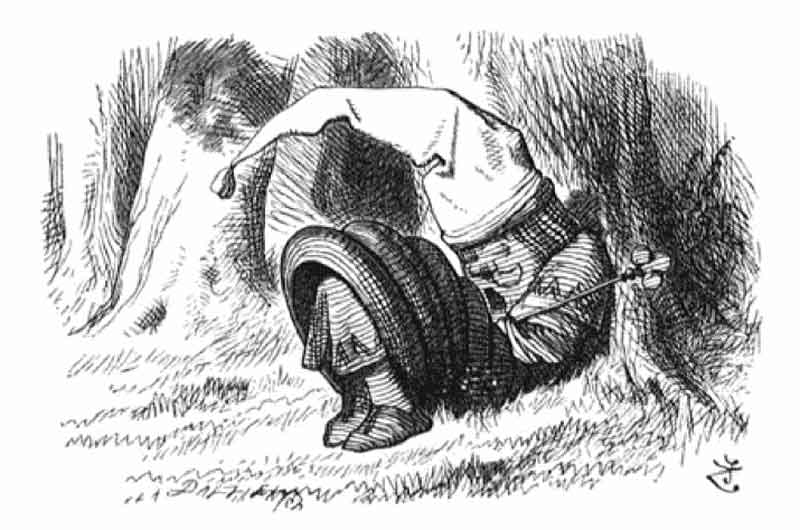
Don’t count sheep
Sleep researchers have found that the old adage of counting sheep is a myth.
Imagining tranquil scenes like beaches, grassy meadows or a cozy mountaintop cabin on the other hand helps you reach shuteye. The reason could be that counting sheep is simply so dull that people tend to lose track and get distracted by their worries, while beautiful, calming scenery is compelling enough to keep our minds off negative thoughts.
- An Oxford study showed that insomniacs have a different pattern of thoughts when they’re trying to go to sleep than people without sleeping troubles. They tended to picture fewer scenes of any kind and instead had a lot of thoughts that centered around their day’s activities, worries, and relationship issues.
The researchers found that when test subjects were told to imagine a relaxing scene such as a beach they fell asleep an average of 20 minutes sooner than they did on other nights.
Roll your eyes
Try closing your eyes and rolling your eyeballs back three times in rapid succession. Because this mimics what happens when you fall asleep, it can trick the body into releasing more melatonin.
Be a rebel. Try to stay awake (seriously, it may work)
Can’t get asleep? Try to stay awake and you may actually fall asleep. This technique is part of so called paradoxical intention (PI) therapy. This is nothing more than doing the opposite of what you normally do to intend the same goal.
It’s a counterintuitive way of facing the circumstance of not being able to sleep that helps you reduce stress and anxiety. You are basically tricking your mind by using a negative statement like “I’m not going to sleep”.
Keep your eyes open and tell yourself you are staying awake. Strangely your brain will act counteractive by inducing sleepiness. Our minds aren’t great at processing negatives, so it will take this thought as a command to fall asleep instead.
Paradoxical intention reduces performance anxiety about falling asleep by instructing patients to do the opposite – get into bed and stay awake. (PubMed)
Inhale through your left nostril
Alternate nostril breathing, part of pranayama, a form of yogi breath control is claimed to help you revitalize or calm down.
One of these ancient Sanskrit methods instructs insomniacs to lie on their left side and close the right nostril by resting a finger on it, slowly breathing through the left nostril.
It isn’t clear whether this practice is more physical or psychological, but this lesser-known yoga trick is seems especially helpful if you’re suffering from hot flashes by reducing blood pressure and providing a calming effect.
Do Like Derren Brown, cultivate a trigger
Just like the popular hypnotist and mentalist, you can set a trigger that your body will recognize as its cue to fall asleep.
It should be a unusual, simple action, such as lightly stroking your cheek as you nod off. Hypnotherapist Sharon Stiles says, “Focus all your attention on what the movement feels like.”
Just be sure to stick with it for several nights and before you know it, your body will learn to associate it with sleep and you’ll start to get sleepy every time the trigger is initiated. It could also be a specific playlist of songs that make you feel relaxed and ready for bed.
- Although not linguistic, this technique is somewhat similar to neuro-linguistic programming techniques (NLP) of setting triggers and anchors. A certain conditioned anchor triggers a certain reaction.
Surprising: your socks can help you sleep
The temperature of your feet influences your ability to fall asleep. You can easily adjust this by sticking your feet from under the blankets when they feel hot or wearing socks in bed when your feet are feeling cold.
But there are more benefits.
Your feet are powerful regulators of our body temperature and comfort levels. By managing your foot temperature you are regulating your body temperature too, by which you can avoid sleeplessness. The warmth dilates blood vessels which helps shift blood flow to the feet. Less core body warmth and warmer extremities can help induce sleep.
Sleep expert Richard Wiseman says:
“Blood flow distributes heat throughout your body, and if you have bad circulation, your extremities will get cold and cause sleeplessness. On the other hand, if it’s too warm, sticking your feet out of the duvet will help. The basic point is to use your feet to regulate body temperature,”
Hum yourself to sleep
Humming is another yoga technique that generates an comprehensive sense of calm, says sleep expert Dr Chris Idzikowski.
He recommends sitting in a comfortable position with closed eyes and dropped shoulders. Keep your mouth gently closed while you relax your jaw. Breathe in through your nose as deeply as is comfortable while maintaining stomach breathing.
Dr Idzikowski says: “Breathe gently out of your mouth, lips together so you hum. Try to hum for the whole out-breath. Notice how it vibrates in your chest. Focus fully on this vibration over six breaths then sit quietly for a moment. Tell yourself ‘I am ready for sleep’, get up slowly and go to bed.” The goal is to breathe in deeply through your nose and then release the breath through your mouth, with your lips slightly parted to create a humming sound. Hum the whole breath out and then repeat the exercise through another five breaths and then head to bed.
Chanting the ancient mystical Om/Aum sound as a mantra can help you meditate, concentrate and sleep as well. Aum is considered the humming sound of cosmic energy. Chanting this root of all mantras is said to cure insomnia and take away fearful dreams.
Rock yourself to sleep
Researchers in Switzerland found that the majority of people sleeping in beds that provided a rocking motion fell asleep faster than they did when they were in the same beds with the rocking mechanism shut off.
The research also demonstrated that rocking increased the duration of stage N2 sleep. Not only that, gentle rocking appeared to actually change their brainwave patterns while they slept, which resulted in more NREM sleep (deep sleep).
- A slow and steady rocking motion seems to increase brainwave activity known as sleep spindles, wherein the brain inhibits normal processing in order to allow you to fall into a deeper sleep. Sleep spindles are one of the indicators that deep sleep is imminent and the more often they happen during throughout your sleep, the more likely you are to sleep soundly.
Sleep in a hammock
Rocking beds are pricey space hoggers. Consider sleeping in a hammock instead. Worry about the times you’ve flipped out a hammock? You just have to know how to lie in a hammock. A suitable hammock will put your body into the best position for sleep and offers various benefits.
[bctt tweet=” #SleepTip: Sleep Hacks; humming, left nostril breathing, foot temperature control, hammock sleeping “]
9. What to do when you wake up at night

Stay in your sleep position
If you do wake up in the middle of the night and don’t need to get up, try to stay in your sleeping position. That’s because movement serves as a wake-up call to your body and your brain, making it more difficult to fall back to sleep.
Accept being awake
If you struggle to fall asleep, worry, or get annoyed you will just become more clearly awake. Make resting and relaxation the goal instead of sleeping. This reduces agitation about not being able to sleep and thus will help you doze off.
- Realizing that 8 consecutive hours of sleep is not a set rule and certainly not how people have been sleeping throughout history may help you too. Your tendency to wake up in the middle of the night is quite normal. Historically speaking.
Listen to sleep or relaxation audio
In addition to making it a part of a bedtime ritual you can use audio to help you get back to sleep when you wake up in the middle of the night too.
Go out of bed after 20 minutes (or so)
If you’ve been lying in awake bed for more than a half an hour, get up for awhile and focus on something else. This goes for the first time that you lay down at night, as well the middle of the night. The longer you lay there, the more likely it is your mind will start to focus on you not sleeping.
- The general rule is to get up after fifteen minutes of not being able to sleep. Some sleep experts advice to stay in bed when you are not feeling anxious or frustrated. You can do some visualization or other relaxation exercises. If however you feel stressed it’s better to get up and do something.
[bctt tweet=”#SleepTip: Wake up at night? Don’t move, accept being awake, focus on your breath, go out bed after 20 minutes.”]
11. Eat Sleep-Inducing Foods
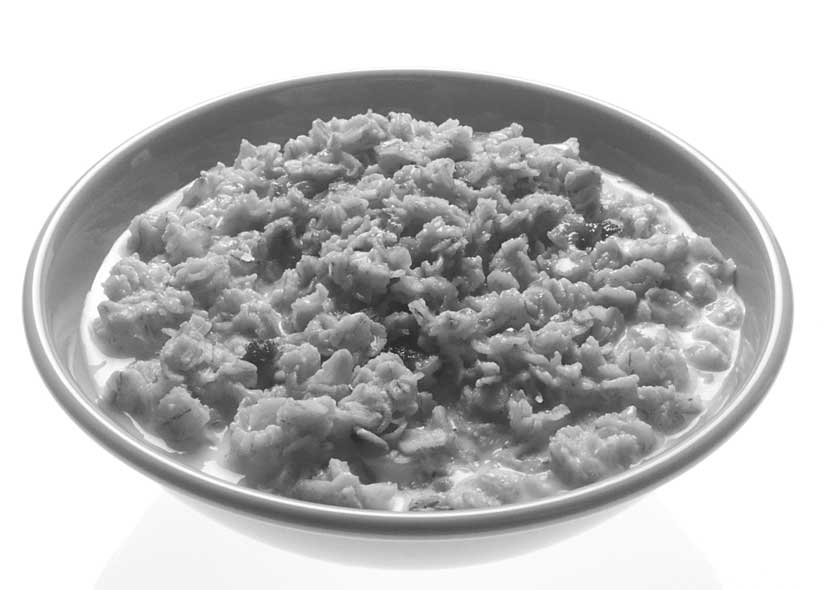
Generally, eating before bed is not recommended because it increases the body’s temperature and metabolism. A light snack may be sleep-inducing, but a heavy meal too close to bedtime keeps you up.
Many common claims about certain foods that bring on Zzzs are myths. The fact that these foods contain naturally occurring substances related to sleep or relaxation doesn’t mean they work. The reality often is more complex. A proven fact is that hunger disrupts our sleep (for me it means lying awake until the wee hours of the night).
What’s also a fact is that what and how much you eat in the hours before you go to bed can have a huge impact on your sleep quality. Here are some of the best science-backed foods for a smooth transition to shuteye.
Don’t bother with warm milk – It’s a myth
Warm milk contains tryptophan which helps you sleep right? Wrong. Drinking warm milk to help you get asleep is an old wive’s tale. Here’s why milk doesn’t help.
- There’s already enough tryptophan stored in your body. True, your body needs the essential amino acid tryptophan to make serotonin. Serotonin is used to produce melatonin. However, you get enough tryptophan (also called L-tryptophan) during the day by eating protein such as dairy, eggs, cheese, chicken, poultry, meat, soy beans, cashews, sesame seeds or fish.
- For it to make you drowsy, tryptophan has to cross the blood-brain barrier. Other amino acids (i.e. tyrosine) present in protein-rich foods such as milk compete with tryptophan, inhibiting absorption. Foods that impact availability of tryptophan are more helpful as sleep aids.
- Protein before bed may actually work counterproductive according to some experts:
“When you eat a mixture of protein and carbohydrate, you don’t need very much protein in there to counteract the carbohydrate effect,” “In any real meal that you’ll take in, the effects of protein will predominate, and you’ll get a decrease in the ratio of tryptophan to other amino acids.” Simon Young, Ph.D., research
psychologist at McGill University. (source: PsychologyToday)
Some studies indicate that tryptophan-rich foods are best eaten at breakfast. Although many people still swear by the age-old trick of drinking a glass of warm milk, sleep experts theorize that any effects could be due more to the psychological effect of believing that it will work.
The best bedtime snack?
Carbs is what you should eat as a bedtime snack. Carbs help tryptophan across the blood-brain barrier where it can boost serotonin levels. Here’s how carbs pave the way to a night of sound sleep:
- When you eat a small all-carbohydrate snack your body makes insulin which diverts other amino acids to body muscles but leaves tryptophan untouched allowing tryptophan to enter the brain doing it’s calming thing.
Also,
- Protein is more difficult to digest (a small piece of cheese won’t cause much trouble )
“It’s a small, all-carbohydrate snack — no more than 30 grams of carbohydrates — in combination with the tryptophan stored in your body from food you’ve already eaten that will give you the biggest boost of serotonin, says nutrition expert Elizabeth Somer, MA, RD,
Oatmeal
Ultimate breakfast and evening food. High in potassium and magnesium. Oatmeal is warm, soft and soothing. The fiber and carbs will help you feel satisfied and make falling asleep easier.
Cherry tart juice
In a study that was published in the European Journal of Nutrition, researchers found that adults who consumed two glasses of tart cherry juice every day slept an average of 39 minutes more a night than normal. That’s because cherries are one of the most potent natural food sources of melatonin.
Chamomile tea
Research has yet to back up the popular claim that chamomile can help you sleep. Still, chamomile has mild sedative properties and contains a flavonoid compound known as apidenin that could serve to reduce anxiety, which could make sleeping easier.
- In animal studies it has been shown to be a safe and mild sleep aid. Some experts say that if nothing else, the hot tea ritual and the firm belief that chamomile makes people drowsy might have an effect, much in the same way that warm milk could.
Foods to eat during the day
Foods rich in magnesium, Vitamin B6,
- Walnuts – Research at the University of Texas demonstrated that walnuts not only contain tryptophan but melatonin too. Since any food that contains tryptophan has to many competing amino acids for it to help induce sleep walnuts may help only because of their melatonin content. A melatonin supplement is likely to be much more effective though.
- Almonds – are high in magnesium. Magnesium deprivation can cause insomnia as was demonstrated by a study published in the Journal of Orthomolecular Medicine.
- Passionfruit – Since passionfruit has somniferum, a chemical that can induce sleep, eating it fresh can be very helpful to getting some rest. Because it’s an exotic fruit, it’s often not easy to find in the produce section, but it can be consumed as a tea or juice and still provide the same benefits.
- Bananas – A good source of magnesium, which is a muscle relaxing mineral, bananas also contain a lot of potassium, which has been shown in research studies to assist with regulating sleep patterns and calming jittery nerves. Bananas are rich in vitamin B6 as well. This may explain why some sleep experts refer to this tasty fruit as a “pill in a peel.” Again, you can eat them just as well during breakfast.
[bctt tweet=”#SleepTip: Science-backed foods that make sleepy; all-carbs & tart cherry juice. Avoid protein before bed.”]
12. The Worst Bedtime Snacks – Foods To Avoid In The Evening
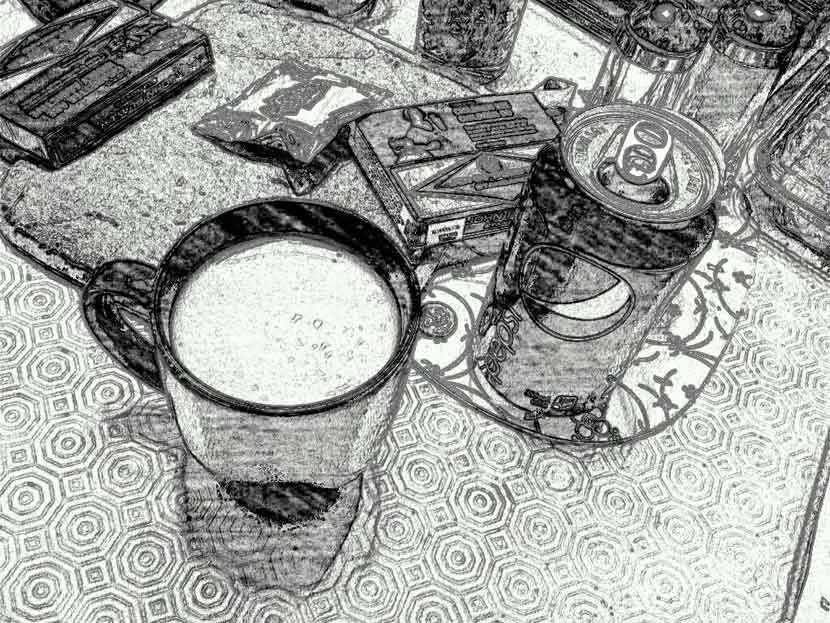
Sugar
Processed sugars will cause your blood sugar to spike and leave you feeling jittery and restless. Waking up in the middle of the night in a cold sweat? Might be an indicator your blood sugar is unstable and that you need to lay off the sugar at night.
High protein foods
Foods that are high in protein actually cause us to have more energy and can make it much easier to fall asleep. Steer clear of eating a high-protein meal in the hours before going to bed.
Caffeine
The effects of caffeine can last for up to 10 hours after consumption. Don’t count on that 10 hours though as research shows that caffeine taken early in the day also negatively affects nighttime sleep.
What many people do not know is that many soft drinks such as cream soda, root beer, orange soda, and lemon-lime drinks contain caffeine in amounts similar to those in the cola drinks. Some yogurts and coffee ice creams have significant caffeine contents too.
- Check out this Johns Hopkins Medicine fact sheet to learn more about caffeine contents in foods. Yep, chocolate contains caffeine too. Remember too that many painkillers and weight-loss supplements have caffeine added to them, so if these pills are part of your routine, they could be costing you a good night’s rest. Caffeine may also influence anxiety.
Chocolate
Chocolate contains small amounts of caffeine. Depending on whether you grab a milk or dark chocolate bar, caffeine contents vary. A dark chocolate serving about 30 mg which is about one third of a medium size cup of drip coffee.
The popular dark delight contains other stimulants too. Theobromine is one of them. It causes increased heart rate and sleepiness. Which is why The National Sleep Foundation says its best to avoid chocolate close to bedtime. If you absolutely must, take some white chocolate, it has no theobromine and almost no caffeine.
Alcohol
Do you too think that alcohol helps you sleep? The opposite is true. Granted, you may fall asleep easier after a glass of wine or two, but your brain is kept from entering the deeper sleep cycles that make you feel well-rested.
While you are asleep that sleep-inducing nightcap is metabolized and cleared from your system. As a result it causes arousals such as sweating, intense dreaming, and headaches that disturb your sleep.
Aspartame
This sugar substitute is bad for your health in many ways, but when it comes to sleep, it can be just as disruptive as sugar or caffeine. Aspartame prompts your brain to release nerve transmitters that can keep you from falling or staying asleep, so quit that Diet Coke in the evening.
Spicy foods
Hot peppers, garlic, mustard and ginger are stimulants that warm your body up, counter to your body’s natural need to cool down before sleep.
Whether or not spicy foods really cause nightmares remains unclear. It seems that some people are sensitive to the chemical composition of certain foods which could be the culprit of having weird, unpleasant dreams. While spicy foods have their health benefits, better not eat them as evening snack.
[bctt tweet=”#SleepTip: Foods that keep you up contain caffeine, dark chocolate, sugar, aspartame, sugar, spicy foods.”]
13. Use nutritional supplements
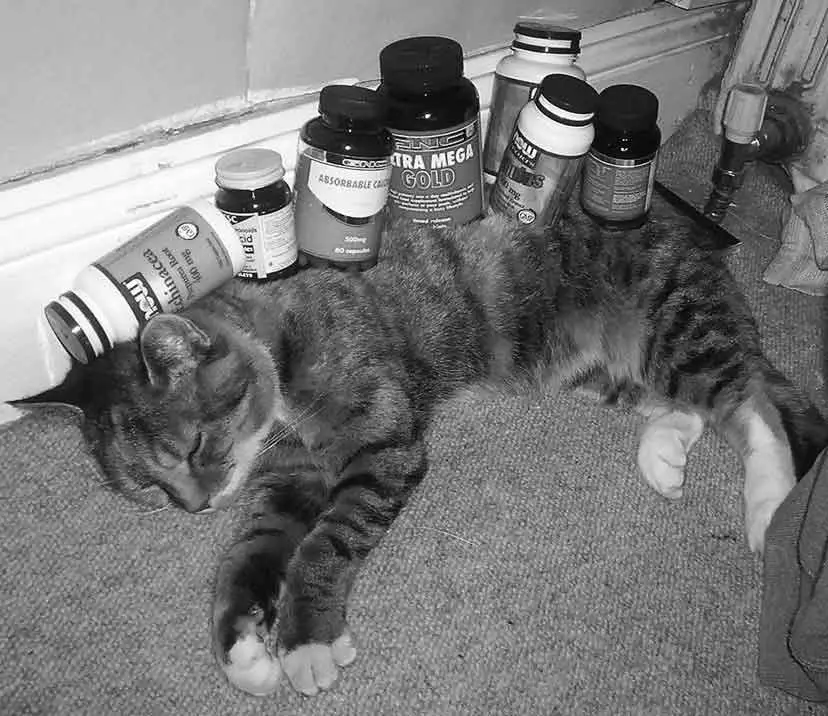
The Father of sleep supplements, Valerian root extract has been relied on as a sleep aid for centuries. Modern research however is mixed about how effective it is.
Most sleep experts agree that it won’t work overnight. You probably need to take the pills for at least a couple of weeks before you’ll know if it’s working for you.
Note: Vitamin and mineral supplements are often not regulated, that’s why it’s important to take the most reputable brands. Follow the directions on the containers and let your doctor know what you’re planning to take since even the safest supplement could interact unfavorably with other drugs or aggravate an existing condition.
Magnesium-Glycinate
Magnesium shows to have powerful relaxing effect on the human body and a lack of it in your diet can definitely disrupt your ability to fall asleep. Eat more magnesium-rich foods like halibut, leafy green vegetables, pumpkin seeds, wheat germ, and almonds. Studies show magnesium supplementation improved sleep in various ways.
Melatonin
Research suggests it may help you fall asleep faster, but has less impact your ability to stay asleep. Melatonin supplements are generally suggested for a night or two of sleeplessness caused by jet lag rather than as a long-term answer to chronic insomnia. Your body should be producing adequate levels of the hormone naturally.
L-Tryptophan & Taurine
Study findings are mixed on the benefits of taking L-tryptophan supplements to help you sleep. It works for some people promoting some aspects of sleep.The essential amino acid is often combined with taurine, another amino acid present in seafoods like mackerel and crabmeat.
- The University of Maryland Medical Center notes that taking 5-Hydroxytryptophan (5-HTP) may be useful in treating insomnia related to depression.
Vitamin B-6
Vitamin B-6 is the tool that your body uses to convert tryptophan into serotonin. A lack of it can keep you from falling to sleep just as a lack of tryptophan can. Taking a complete B vitamin supplement can help to solve this problem. You can also get plenty of B-6 by eating foods like tuna, pistachios and sunflower seeds.
L-Theanine
L-theanine supports the nervous system, can enhance serotonin levels, thus reduce stress and promote sleep. One of the best sources of theanine is green tea, which also typically contains caffeine. Research suggests however, that the presence of theanine in tea actually helps to counteract the jittery feeling typically associated with caffeine.
- Subjects in a Japanese study, taking L-theanine supplements didn’t sleep longer but did sleep better.
[bctt tweet=”#SleepTip: Proven sleep supplements: magnesium, L-Theanine, Vitamin B6, L-Tryptophan / Taurine, melatonin.”]
Wrapping it up, time to sleep like a baby again
You know that a lack of good sleep cripples you. Am I right?
You may even have forgotten what it’s like..
To jump out of your bed with fresh energy and renewed joy. Actually being recharged by high quality sleep.
Ignorance and bad habits sneak in, and since our quality of life deteriorates so gradually we don’t even seem to notice. At first.
But at a certain point you will be tired of waking up feeling exhausted.
There will be a wake up call: telling you that now is the time to prioritize good sleep. To stop sabotaging your sleep.
We collectively sleep too little, we pop sleeping pills like candy, and the sleep we get is often of low quality. Sleep deprivation isn’t a virtue. Bragging “I’m too busy to sleep more.” or “I’ll sleep when I’m dead” will put you in danger.
Become a better sleeper. You will improve your mood, balance your emotions, boost your sex life, reduce potential pain, high blood pressure, and diseases (some types of cancer even), thin your waistline, and improve your memory. Have more energy, be a better problem solver, be more creative.
And that’s just the tip of the iceberg.
Researchers are only just beginning to fully understand all the functions of sleep and how important deep sleep really is.
Take these tips at heart, put yourself in the right environment and frame of mind for a solid night of shuteye. So you can get your day started on the right foot again.
Remember the Irish proverb, “A good laugh and a long sleep are the best cures in the doctor’s book.”
Featured image, Jody Asano.
Images: cat, Red King ,striatic , chilling on couch, insomnia, people sleep standing up , coffee and cola, oatmeal, night owl, sleep and sex, count blessings, ‘supplement cat’. By: The Author of this site

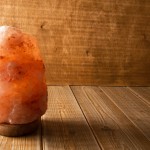
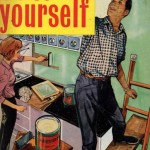

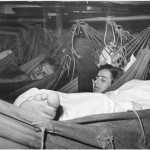




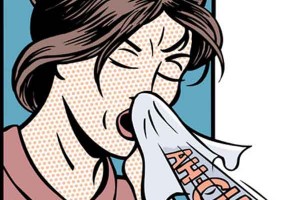


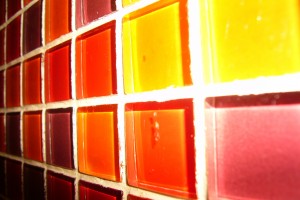
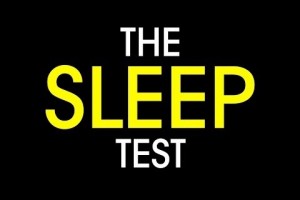
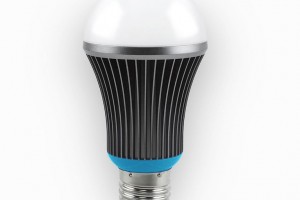

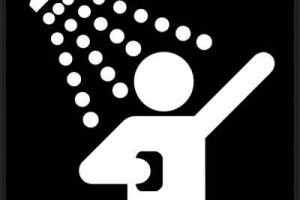






DO NOT order Melatonin Shades. They charged me almost 50% more because they converted the price to US dollars after I ordered. I attempted to return the product and they refused the delivery, so I got screwed. They have since updated their website to show the price in USD, but they were charging CAD before the dollar tanked. So basically everyone (including US consumers) are being charged a higher price because the company thought they could take advantage of currency fluctuations. They’re cheap orange sunglasses- $49.95 CAD is already a bit of a rip off, but I was willing to pay a premium to support a Canadian company. They’re DEFINITELY not worth $49.95 USD when you can get the same, if not better results from an $8 pair of Uvex.